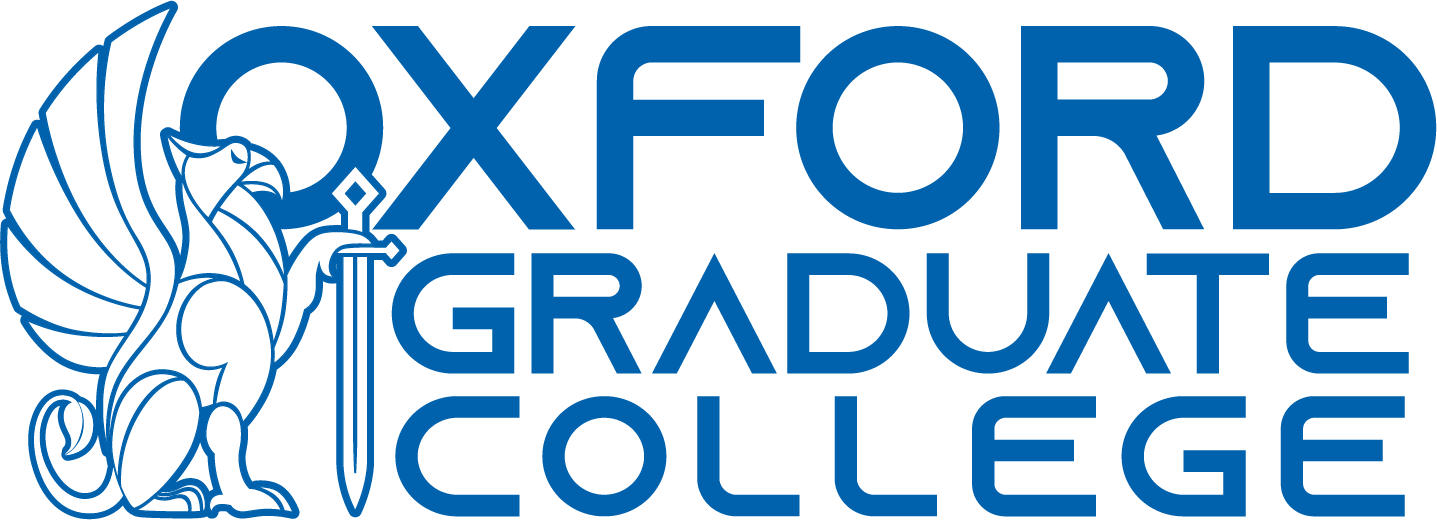
PROGRAMME SPECIFICATION
NAME OF PROGRAMME:
GRADUATE DIPLOMA- MECHANICAL ENGINEERING
Philosophy
The level 6 Graduate Diploma in Mechanical Engineering prepares students for a broad range of careers associated with the design and implementation of mechanical systems involving the conversion, transmission, and utilization of energy. Mechanical engineering courses that provide breadth in the discipline include design, dynamics, engineering materials, thermodynamics, fluid mechanics, heat transfer, vibrations, systems analysis, and project management. Mechanical engineers are recognized for their knowledge and skills in designing, implementing and operating devices, machines, engines, and energy systems. Mechanical engineers design and build mechanical devices that use mechanical motion. They apply the fundamentals of science and mathematics to create practical, useful solutions that the rest of us can use. It is through their skills and technical expertise that today’s engineers can combine the latest advances in materials and design tools, with a fundamental understanding of engineering science, to design and manufacture goods that are more reliable.
Information on Award
| Final Award | GRADUATE DIPLOMA- MECHANICAL ENGINEERING |
| Programme Title | GRADUATE DIPLOMA- MECHANICAL ENGINEERING |
| LEVEL | 6 |
| Duration of Course | Suggested time -18 Months
Can be completed earlier. |
| CREDITS | 240 |
| Entry Requirements | Applicants must:
· Possess at minimum of any related Associate Degree in the relevant field. · Be at least 21 years of age · EDUQUAL Level 5 Diploma · RQF/QCF/NQF Level 5 Diploma · SCQF Level 8 Diploma · EQF/FHEQ Level 5 Diploma |
| Major pathways within the course – Where course can lead to different areas of emphasis | Completion of the course can encourage participants to pursue further studies into:
· Post Graduate Diploma- Mechanical Engineering · MSc- Project Management · MSc- Health and Safety |
| Targeted occupations for graduates | After completion of the course, graduates can serve in organizations in positions as:
· Materials Engineers · Mechanical Engineering Technicians · Sales Engineers · Control and instrumentation engineer · Production Manager
|
Programme Aims
| The main aims of the Graduate Diploma in Mechanical Engineering are to: | · A reputation for working effectively and ethically in diverse professional environments.
· Leadership in their profession while actively pursuing lifelong learning and contributing to progress within their field. · The ability to practice responsible decision making and apply best practices to their professional endeavors. · Acquire knowledge in engineering management and leadership. |
The Learning Outcomes
| On completion of this program, participants should be able to:
|
· An ability to identify, formulate, and solve engineering problems by applying principles of engineering, science, and mathematics.
· An ability to apply engineering design to produce solutions that meet specified needs with consideration of public health, safety, and welfare, as well as global, cultural, social, environmental, and economic factors. · An ability to communicate effectively with a range of audiences. · An ability to recognize ethical and professional responsibilities in engineering situations and make informed judgments, which must consider the impact of engineering solutions in global, economic, environmental, and societal contexts. · An ability to function effectively on a team whose members together provide leadership, create a collaborative and inclusive environment, establish goals, plan tasks, and meet objectives. · An ability to develop and conduct appropriate experimentation, analyze and interpret data, and use engineering judgment to draw conclusions. · An ability to acquire and apply new knowledge as needed, using appropriate learning strategies. |
Programme Structure and Requirements
| UNIT TITLE | STRATEGIC LEADERSHIP |
| TQT (Hours) | 200 |
| UNIT AIM & SUMMARY | This unit provides an in-depth understanding of the key principles and practice of leadership This will enhance the individuals’ knowledge, skills and attributes to effectively engage in the role and responsibilities required of an effective team player and leader of a team; being proactive in innovation and improvement to inform strategy and business planning within the organisation. |
–
| UNIT TITLE | PROJECT AND LOGISTICS MANAGEMENT |
| TQT (Hours) | 200 |
| UNIT AIM & SUMMARY | The aim of this unit is to allow the learner to understand concepts of portfolio management and the associated features. The value of having a Project Management Office will also be examined and the stages of establishing and effective project management office will be considered. Learners will also examine the supply chain ecosystem and review IT frameworks appropriate for logistics and supply chain complexities. |
–
| UNIT TITLE | QUALITY & RELIABILITY IN ENGINEERING |
| TQT (Hours) | 200 |
| UNIT AIM & SUMMARY | The aim of this unit is to teach the importance of quality as it’s relates to which performance of goods and services meets expectations, whereas the reliability is the probability that a system or component performs its intended function for a specified interval under stated conditions. This unit is about the design process that leads to reliable systems with built-in quality. It enables measurement of effectiveness and repeatability. The aim of this unit is to develop knowledge and understanding of artefact quality, reliability, safety, and maintainability by measurement and planning. |
–
| UNIT TITLE | RENEWABLE ENERGY TECHNOLOGY |
| TQT (Hours) | 200 |
| UNIT AIM & SUMMARY | The aim of this unit will allow students to apply the basic concepts of science and engineering in the solution of wide range of renewable energy engineering technical and practical problems. Possess the ability to experiment, design, operate and service technical system that integrate contemporary engineering practices and modern tools and to overcome environmental and sustainability constraints. |
–
| UNIT TITLE | CONTROL SYSTEMS |
| TQT (Hours) | 200 |
| UNIT AIM & SUMMARY | This unit is about the methodology used for the design and evaluation of control systems. The aim of this unit is to provide the knowledge and skills required to design and evaluate control systems relating to mechanical, manufacturing, and electrical engineering applications. |
–
| UNIT TITLE | Procurement and Supply Management |
| TQT (Hours) | 200 |
| UNIT AIM & SUMMARY | The unit seeks to provide learners with a thorough understanding of procurement and supply management from a strategic, technological, process and relationship perspective. The goal is to provide insights on the role of procurement within supply chain management, the tools and techniques to assess sourcing options, the negotiation and contractual issues encountered with suppliers, effective supplier relationship management and technological enablers in procurement. |
–
| UNIT TITLE | Manufacturing Technology |
| TQT (Hours) | 200 |
| UNIT AIM & SUMMARY | Manufacturing technology is a branch of mechanical engineering that refers to the commercial industrial production of goods with the help of basic equipment and advanced machine tools. This unit aims to cover this topic in detailed and will provide students with a comprehensive understanding |
–
| UNIT TITLE | MATHEMATICS FOR ENGINEERING |
| TQT (Hours) | 200 |
| UNIT AIM & SUMMARY | This unit is about advanced mathematical techniques and their applications as required by practicing engineers. The unit aim is to equip the learner with the mathematical expertise required to function as a professional engineer. |
| UNIT TITLE | HEALTH AND SAFETY LAW AND REGULATION. |
| TQT (Hours) | 200 |
| UNIT AIM & SUMMARY | The aim of this unit is to give learners an understanding of international frameworks for health and safety legislation and regulation, how these frameworks are set, and the subsequent obligations on organizations to comply. The learner will explore the role played by industry, professional bodies and media communities to influence the promotion of positive health and safety outcomes locally, nationally and globally. |
–
| UNIT TITLE | MATERIALS SCIENCE |
| TQT (Hours) | 200 |
| UNIT AIM & SUMMARY | This unit is about the structure-mechanical property interrelationship of engineering materials and their predictive performance at the design, manufacture and in-service stages. The aim of this unit is to provide the knowledge required to understand the properties and behaviour of materials used in engineering applications particularly metals, polymers and ceramics. |
–
| UNIT TITLE | INSTRUMENTATION |
| TQT (Hours) | 200 |
| UNIT AIM & SUMMARY | The aim of this unit will teach you how to install, maintain, test, and calibrate highly complex devices that are used in the automation of industrial processes. Through the use of state of the art simulation equipment, as well as hands-on applied technology training and general academic coursework, the student will develop the skills required to be a successful Instrument Technologist. |
–
| UNIT TITLE | PROCESS TECHNOLOGY/ENGINEERING |
| TQT (Hours) | 200 |
| UNIT AIM & SUMMARY | The aim of this unit will teach students the responsibility for ensuring that a production process and related equipment are running reliably and effectively. This includes monitoring equipment and process parameters, planning upgrades and maintenance, and developing and implementing changes that improve uptime and output quality. |
–
| UNIT TITLE | HYDRAULICS AND PNEUMATICS |
| TQT (Hours) | 200 |
| UNIT AIM & SUMMARY | The aim of this unit is to provide student with knowledge on the application of fluid power in process, construction and manufacturing Industries. Students will also have an understanding of the fluids and components utilized in modern industrial fluid power system and develop a measurable degree of competence in the design, construction and operation of fluid power circuits. |
–
| UNIT TITLE | ELECTRONICS AND COMMUNICATION SYSTEMS |
| TQT (Hours) | 200 |
| UNIT AIM & SUMMARY | The unit aims to develop the knowledge of semiconductor devices, power supplies, low frequency signal amplifiers, oscillators, digital logic circuits and logic families. The unit is also aimed to develop an understanding of communication principles and systems. |
–
| UNIT TITLE | MECHANICAL ENGINEERING SCIENCE |
| TQT (Hours) | 200 |
| UNIT AIM & SUMMARY | This unit aims to interpret and present qualitative and quantitative data using computer software, calculate unknown parameters within mechanical systems, explain a variety of material properties and use electromagnetic theory in an applied context. |
–
| Research Skills | Research Project |
| Description | A comprehensive research project encompassing all of the knowledge and skills gained throughout the duration of the programme. |
Information about Assessment Regulations
Participation and completion of all assessments are mandatory in order to obtain an overall final grade for the unit.
The use of any of the following Assessment Methods may be utilized in the individual assessments
- Course Assignments
- Self-study assignments
- Online Quizzes
- Portfolios
